From taking history classes in high school and university we have all learned what a primary source is (an original source or firsthand perspective for those of you who can't remember), and the benefits of using them in historical studies. More specifically, when we study recent history, conducting an interview can provide one of the best sources of information. While you have memorized and repeated the definition of a "primary source" for years now, actually developing and accomplishing an interview is something foreign and intimidating to us. Luckily, in order for me to successfully complete a walking tour of the Chilean community for Heritage Toronto, I took the bullet for all students and now live to tell my story and give some advice on the interview process.
Preparing to Interview:
- At this point in the process, you will need to familiarize yourself with the ethics of interviewing. You might want to begin by first asking a supervisor what rules surround interviews, and whether or not there are forms that need to be filled out on behalf of the organization. Interviews can be really tricky as they might bring up difficult experiences, and privacy and disclosure of the information can become hard to manoeuver. In order to be well equipped for these moments, reading articles like Brue Jackson’s “Interviewing” and Micaela Di Leonardo’s “Oral History as Ethnographic Encounter”, as well as even referring to the government of Canada's ethics module to ensure your competency.
- If available, be sure to do your research on the person you are interviewing. This will help the interviewee feel more comfortable around you, while also not wasting too much time on questions like, “when were you born, or where?”
- In order to get to the next step of creating questions, you need to reflect and decide what kind of interview you want. There are regular interviews, which may reflect on current feelings and a bit of experiences, or oral histories, which are usually done with older people and discuss life-histories. It is important here to keep in mind the outcome you want in the interview, are you looking for just general experience? Is there something extremely interesting about this particular person? Are they involved in something that you want to focus on?
The Questions
- For an hour-long interview you want to create about ten questions. You will want to begin with more general questions that will allow you and the interviewee to become more comfortable. The key within this is to make them open ended, where the interviewee is not just answering "yes" or "no". To do this, have an idea of where the answer to your questions might lead, and how you can guide the interview with follow-up questions on areas of discussion you want to focus on.
During the interview
- As the guidelines for ethics outlined, you MUST: introduce your subject and research question, be sure to be as transparent as possible regarding your intent and purpose, and get their consent, whether verbal or written.
- In obtaining the interviewees consent, do not forget to mention: that they have the ability to stop the interview at any time and have their statements removed at any point. You might also want to tell them how long will their interview be kept (i.e.: will it be destroyed at any time?) and where it will be stored.
- When finally getting to the questions, be confident and calm, as the interviewee will, in most cases, reciprocate this. In my own experience, when I interviewed a key Chilean community figure who had just written a book on the topic of Chilean exiles in Canada, I was intimidated. In calming myself down with broader questions initially, I got more comfortable with my interviewee, and eventually noticed that he dropped his professional tone of discussion to one that was more friend-like. This allowed me to ask more difficult questions, and address issues that I noticed appearing with interviewing other members of the community.
Reflection and Analysis
- For a public walking tour the idea of reading between the lines and analyzing an interview might not seem important or essential. In my case, by analyzing the interview I found key details and perspectives that were hidden in tones and word choices, which in the end guided the rest of my project for Heritage Toronto.
- Naturally in the process of conducting interviews, some meetings seemed to be more beneficial than others. There were people that just shared what they thought I wanted to hear, and others that you could tell were really passionate about this story and history. In analyzing the raw oral history interview, you can begin to realize that there really is no such thing as a bad interview. In my case, when trying to write about the Chilean experience in the city, I heard a lot about their political presence over anything else. After such interviews, I had the ability to recognize the subject position of those I was interviewing, and realized they were just reflecting and representing their own history, or knowledge they thought was important.
- This period of reflection gave me time to recognize other areas of the Chilean experience that were not mentioned. I was able to analyze the situation further by looking at the tone of interviewees on certain topic; did they change the topic quickly or ignore my question? What does this say? Ultimately, in this reflection and analysis I was able to see trends while also preparing myself and thinking of ways to rephrase my own questions in order to get better results in my next interview.
Remember, by reflecting and choosing to adapt your questions and interview style, the interview process will get easier and you will get better.
